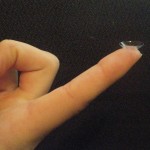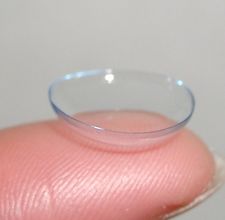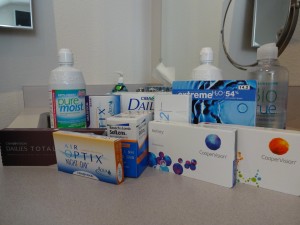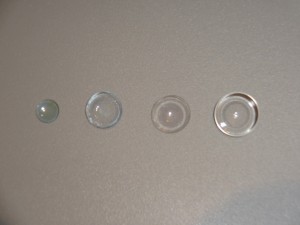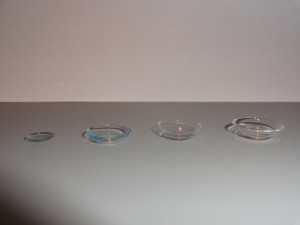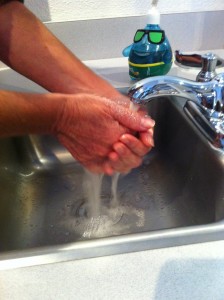 [heading centered=”yes” margin_bottom=”no”]Wear sunglasses with UV protection[/heading]
[heading centered=”yes” margin_bottom=”no”]Wear sunglasses with UV protection[/heading]
Did you know that it is actually possible for your eyes to get sunburned?! Just like your skin, your eyes need protection from the sun. Wearing sunglasses outdoors is very important in protecting your eyes from harmful UV rays. Excessive exposure to UV light can also increase your risk for developing early cataracts and macular degeneration. When looking for a new pair of sunglasses, make sure that they have a minimum UV 400 protection and that they block both UVA and UVB rays. Additionally, sunglasses will provide a shield of protection from dust and debris that can get blown into your eyes, which is a great added bonus, especially on those windy beach days!
[heading centered=”yes” margin_bottom=”no”]Maintain safe wear and care of contact lenses[/heading]
Keep your eyes healthy this summer by practicing safe contact lens wear. Long days, hot weather, travel, and lots of time outdoors can put you at a higher risk of developing a contact lens-related eye problem. In order to minimize this risk don’t forget to maintain proper contact lens hygiene! Remember to make sure that your hands are washed before handling your contact lenses, always use fresh contact lens solution, and minimize contact with water; this includes removing your contacts before going swimming or in a hot tub. And if you notice any redness, irritation, light sensitivity, decreased vision, or discharge, do not wear your contacts and call the office immediately.
[heading centered=”yes” margin_bottom=”no”]Wear protective eyewear[/heading]
Summertime often means working on projects around the house. This can include gardening, painting, remodeling, etc. that can potentially result in small objects flying around. Make sure you wear proper eye protection during these activities. And by eye protection, this does not mean regular glasses or sunglasses, this means professional quality goggles with impact resistant lenses and full coverage frame. You’ll also want to be sure to protect your peepers while playing sports, especially those that utilize small sized balls, such as golf balls, squash balls, and badminton shuttlecocks. Wearing proper eyewear can prevent up to 90 percent of serious eye injuries. If you do experience an eye injury, make sure to call us so that a proper eye health examination can be performed.
[heading centered=”yes” margin_bottom=”no”]Avoid chemicals and natural irritants[/heading]
Chemicals found in pools and bacteria often found in lakes and rivers can be harmful or bothersome to your eyes. Be sure to always wear goggles if you will be opening your eyes while playing or swimming in water. Other natural irritants that you may be exposed to while outdoors or hiking can include poison ivy, oak, and insect bites. If you find yourself outside near these irritants, be mindful of keeping your hands clean after touching plants, as rubbing allergens into your eyes can be very uncomfortable. If you notice any eye irritation, swelling, or redness, after any of these activities, contact the office so we can aid in determining the cause and help relieve your symptoms.
[heading centered=”yes” margin_bottom=”no”]Schedule your yearly eye examination[/heading]
Since you and the kids often have a little extra free time over the summer, it is the perfect time to schedule your annual eye examination?! A comprehensive eye exam is one of the most important preventative ways to preserve vision, and is the only way to accurately assess the health of your eyes, diagnose an eye disorder or disease, and determine if you require corrective lenses. Catching potential eye problems early could save your vision in the future, and that makes for an extremely bright and happy summer! Schedule online.
